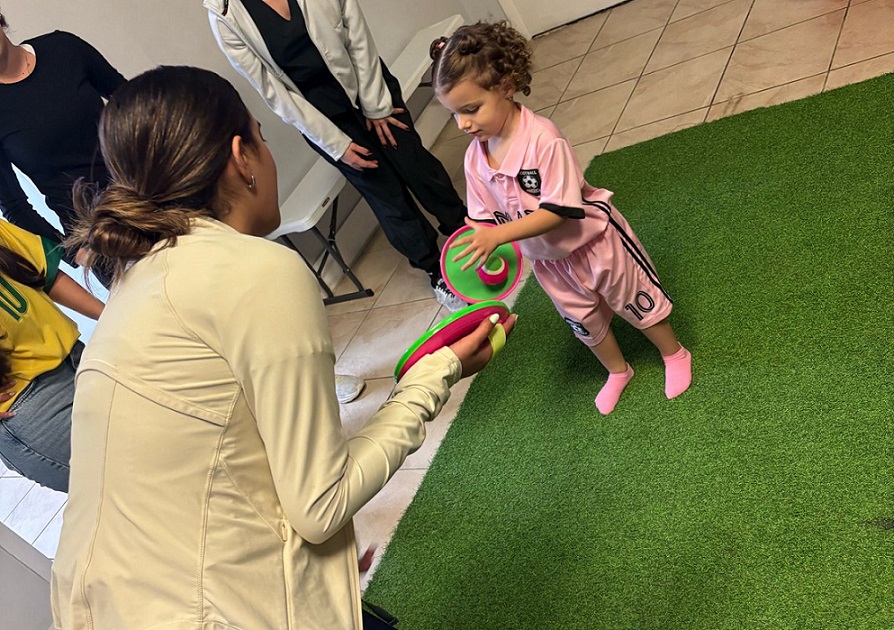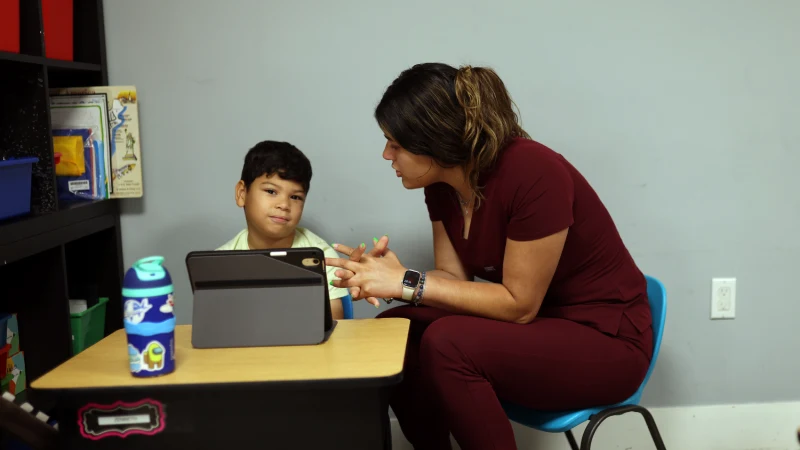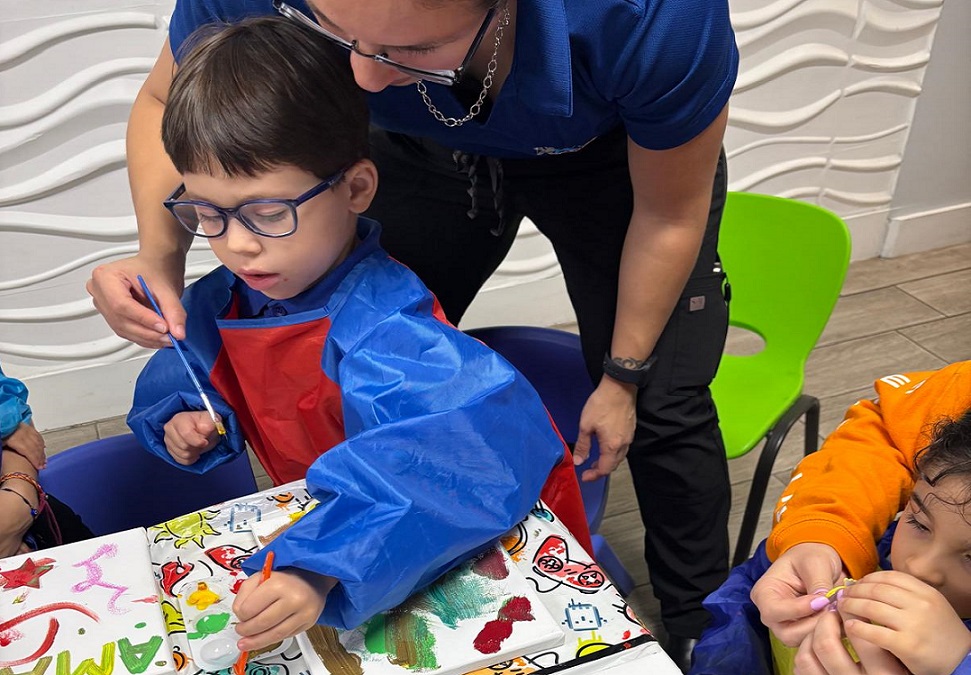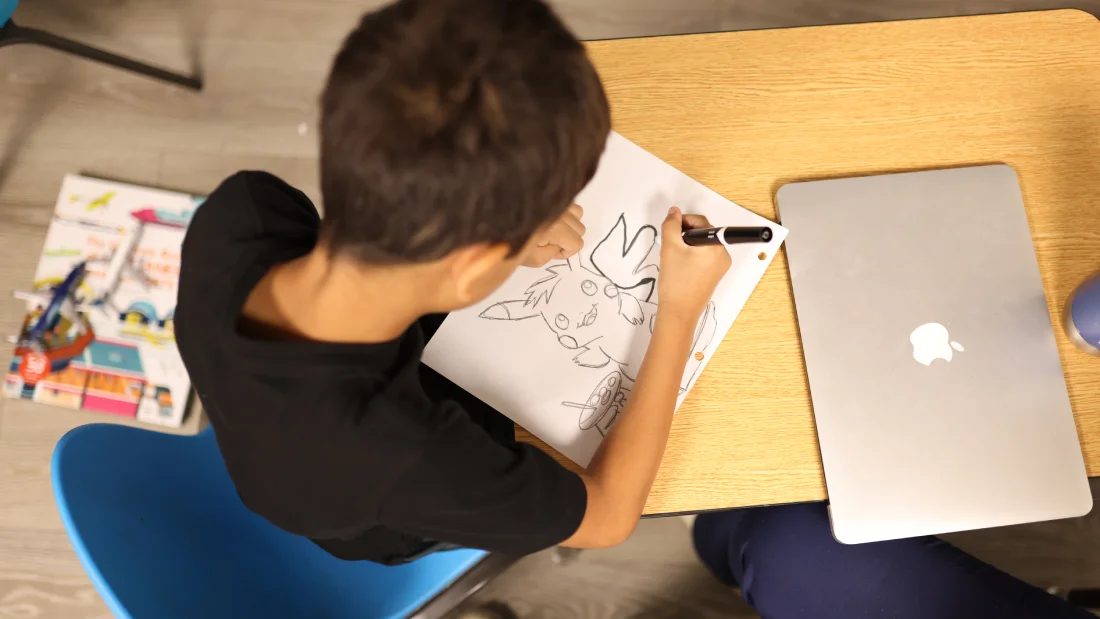Being the parent of a child with autism can be a challenging experience for those who live it daily. Certainly, from the very first day of therapy, with every achieved smile and every new word, comes a feeling of relief and hope. But time is a decisive variable, and understanding the early signs of autism can be crucial.
Evidently, in every moment of doubt, seeking answers is a great act of love and commitment to our children. In this sense, understanding the first signs of autism in children is the first step toward supporting your child to achieve the future you’ve dreamed of for them; it is the first step toward more words… and more smiles.
A Complete Guide to Understanding the First Signs of Autism.
Starting today, this article will be your guide on the journey of child development. Remember that knowing the early signs of autism is not a step toward constant alarm, but toward greater empowerment for your child. Thus, this information is the key to understanding their needs, so they can reach their full potential.
Below, you will find a clear and practical guide to help you interpret the first signs of autism in young children. From this point forward, you will be able to make the best decisions for your child’s future; that future full of opportunities that every parent of a child with autism never stops fighting for.
Top 5 Early Signs of Autism You Should Not Ignore.

The connection between parents and children is a very intimate combination of looks and gestures. When that connection suddenly changes, certain signs can be clues as to how your child is interpreting the world. Recognizing autism early is crucial for their future; that is why we have organized these early signs of autism so you can identify them easily.
1. Delays in Speech and Communication.
The dialogue between parents and children is the pillar of their connection. If the first words or babbling haven’t arrived, or if you notice that non-verbal communication is failing, you should observe your child more closely. Communication is vital in your child’s development; and if you notice the following early signs of autism, it is important to seek specialized help:
- Absence of Babbling at 12 Months: A baby typically begins babbling at this age. The lack of these sounds can be one of the early symptoms of autism.
- Lack of Words at 16 Months: At this age, the absence of the first intentional words is a key developmental change that should not be overlooked.
- Not Using Two-Word Phrases at 24 Months: The inability to form simple phrases, such as “more milk” or “my mom,” is a significant red flag for speech delay.
2. Limited Eye Contact and Social Interaction.
The eyes of a child with autism are a window into how they connect with the world. And when that gaze feels distant or social interaction is a challenge, it is a signal that their perception of the environment is shifting. These are some key signs to watch for in your child’s social engagement:
- Avoids Eye Contact: The child may seem disinterested in looking their parents in the eyes, limiting one of the main forms of connection.
- Does Not Respond to Their Name: Unlike other children, they do not react when called by their name, even if there are no other noises or distractions.
- Lack of Interest in Interacting: They do not seek their parents’ attention; they are not interested in playing with other children and prefer to play alone.
3. Repetitive Behaviors and Restricted Interests.
All children have their own quirks or passions, but some children use repetitive behaviors as a language to express their emotions. Now, if these patterns become intense or restrictive, they can be a clue to early signs of autism and how they experience the world around them:
- Repetitive Body Movements: The child may flap their hands, rock, or spin constantly to calm themselves.
- Fixation on Unusual Objects or Topics: They may show intense fascination with only one part of a toy (like the wheels of a car), or with a very specific topic.
- Obsession with Routines: They become extremely irritated by any small change in their daily routine, seeking stability and predictability.
4. Sensory Sensitivities.

Imagine living in a world where the volume, light, and textures are always at max intensity, and there is no way to turn them down. That is what the reality of an autistic child with sensory sensitivity can be like. Therefore, understanding their extreme reactions to sounds, lights, or textures helps us create a much safer environment for them:
- Extreme Reaction to Sounds: They may cover their ears or scream at loud noises, such as a vacuum cleaner or an ambulance.
- Intolerance to Textures: They may reject certain fabrics, foods, or surfaces, showing extreme aversion to them.
- Sensory Seeking: They may constantly seek certain stimuli, such as touching surfaces repetitively or smelling objects in an unusual manner.
5. Delays in Developmental Milestones.
The developmental path of every child is completely unique. If you notice your child has not reached the developmental milestones expected for their age, such as walking or playing in a certain way, it could be that they are simply following their own rhythm. Even so, it is important to consider these early signs of autism:
- Delay in Motor Skills: A delay in learning to walk or in the development of fine motor skills, such as holding objects.
- Lack of Symbolic Play: They use little imagination in play, such as pretending a banana is a phone or that a box is a spaceship.
- Does Not Imitate Gestures: They do not imitate facial expressions, clapping, or simple gestures they see their parents perform.
Why Is Early Autism Detection Important?

After learning these early signs of autism, it is natural for parents to ask, “What now?” And the answer is profoundly real: early autism detection is not the goal, but the starting point toward your child’s well-being; it is the moment you finally open the doors to a world of opportunities for your child.
Moreover, the neuroplasticity of the infant brain is astonishing, and early intervention can seize this opportunity to strengthen lifelong motor and social skills. Below, we summarize three of the undeniable reasons why early detection and intervention for autism are vital:
- Maximizes Potential: Provides the necessary tools to develop social skills crucial for life.
- Improves Quality of Life: Reduces daily challenges and the frustration they may experience when trying to overcome them.
- Strengthens the Family: Offers parents the necessary support and resources to guide their child throughout the process.
Koala ABA: Your Ally in Early Detection and ABA Therapy.

Taking the first step toward an autism diagnosis may seem like an overwhelming path… and it’s one you don’t necessarily have to walk alone. At Koala ABA & Learning Centers, we understand the importance of acting promptly, and we put at your disposal a team of specialists passionate about helping every child reach their maximum potential.
Here, more than a therapy center, we are a place where science unites with love and empathy, creating a warm and safe environment where children can grow, learn, and discover everything they are capable of achieving.
Why does Koala ABA make the difference? Because, starting from the early signs of autism, we guarantee:
- Early Intervention with ABA: Personalized programs based on Applied Behavior Analysis.
- Families as Protagonists: Parents and caregivers are an active part of the therapeutic process.
- Comprehensive Stimulation: We strengthen language, social, cognitive, and emotional skills.
- Preparation for Life and School: We develop autonomy, safety, and confidence in every child.
Taking the step toward an autism evaluation is an act of love and courage.
At Koala ABA, we walk alongside you and provide the necessary tools to build the best future for your child.
Contact us today, and let’s start writing the story of achievements that your child deserves.





